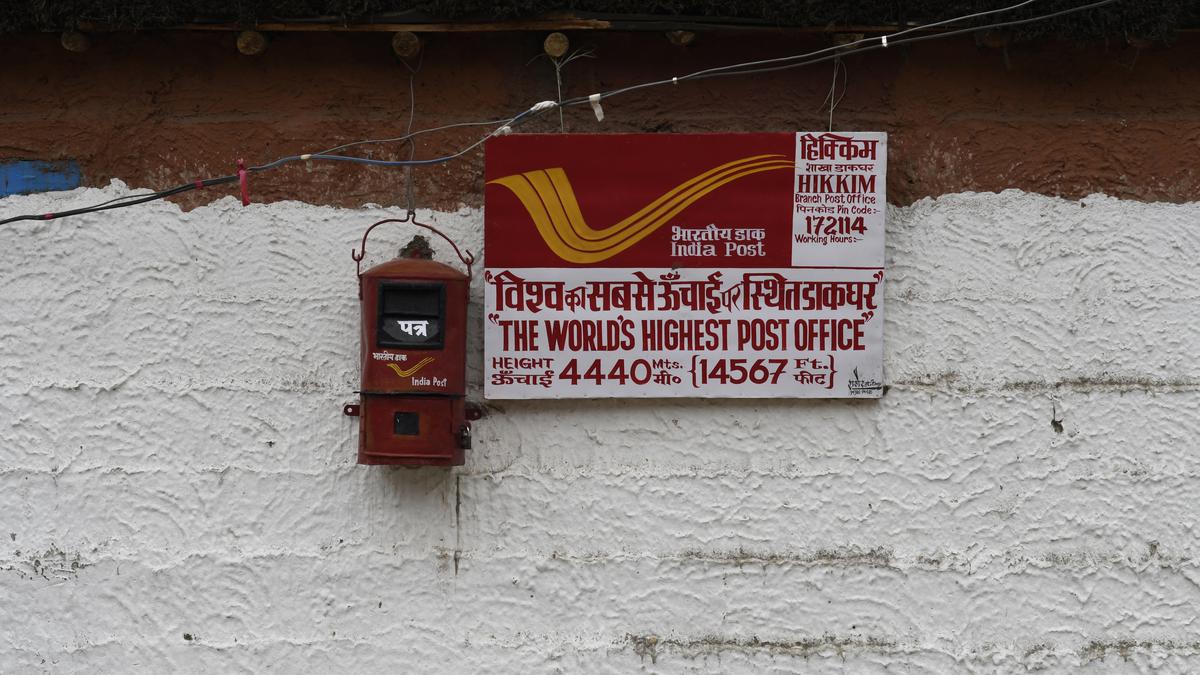
Changing the way the postman knocks Premium
The Hindu
Doing away with the provision of “exclusive privilege” by the central government in the new Post Office Bill is a step in the right direction
The new Post Office Bill (2023) introduced in the Rajya Sabha on the penultimate day of the monsoon session of Parliament, is to replace the Indian Post Office Act (1898) in the light of the changing role of post offices where its “network has become a vehicle for delivery of a variety of citizen centric services”. While the 1898 Act had focused only on mail services, the new Bill authorises the Director General of Postal Services to make regulations related to activities necessary for providing various such other services as the central government may prescribe, and to fix charges of them. This provision is important as parliamentary approval will not be a prerequisite for revision of charges for any service offered by post offices, including traditional mail services.
This aspect in the new Bill gives the postal department the requisite flexibility in deciding the prices of its services in a fiercely competitive industry and help in responding quickly to market demands. Also, various initiatives of India Post to dispense citizen-centric services will now be based on a strong legal framework.
The new Bill authorises the central government which “may, by notification, empower any officer to cause any item in course of transmission by the Post Office to be intercepted, opened or detained in the interest of the security of the State, friendly relations with foreign states, public order, emergency, or public safety or upon the occurrence of any contravention of any of the provisions of this Act....”. Even in the existing Act (1898), there was provision for the Postal Department to open and destroy any postal article containing “explosive dangerous, filthy, noxious or deleterious substance” (Section 19, 19A, 23(3)(a) refer). The provision contained in the new Bill is more generic in nature and will arrest possibilities of smuggling and unlawful transmission of drugs and other contraband goods through postal parcels. There is no similar legislation for courier firms. India Post has a share of less than 15% of the market in the courier/ express/parcels (CEP) industry, and so the effectiveness of the provision to intercept, open or detain any item in the course of postal transmission on the grounds of national security and public service has its limitations.
A major part of the domestic courier industry is made up of medium and small players. If the Bill had any provision for such operators to register with any designated authority and if the central government had retained the authority to intercept and open parcels in the course of transmission by the couriers, that would have given teeth to the Bill to control the movement of contraband goods in parcels.
The new Bill provides the central government “standards for addressing on the items, address identifiers and usage of post codes”. This provision will have a far-reaching impact as the physical address may be replaced by a digital code using geo-spatial coordinates to identify a specific premise. Digital addressing, though a futuristic concept, may ease the process of sorting and facilitate accurate delivery of mails and parcels. This provision may even facilitate the delivery of parcels by drone, as is being experimented in some countries. However, there is a long way to go.
The most important aspect of the Bill is to drop the hitherto existing provision in clause 4 of the 1898 Act: “Central Government shall have the exclusive privilege of conveying by post, from one place to another, all letters … and shall also have the exclusive privilege of performing all the incidental services of receiving, collecting, sending, despatching and delivering all letters….” This provision lost its relevance ever since couriers were allowed to operate in India since the 1980s. This happened because the definition of ‘letter’ was not spelt out anywhere in the Act or in subsequent Indian Post Office Rules, 1933. There is a huge grey area overlapping the concepts of ‘letter’ and ‘document’. In the eyes of law, what the couriers hitherto delivered were ‘documents’ and ‘parcels’, not the ‘letters’. Once the new Bill becomes an Act, all these legal debates as to what constituted a letter and what did not, will die down automatically.
Whatever may be the legal provision, a commoner perceives a letter to be a written and personal form of communication between two individuals, physically conveyed by post. After the mobile revolution, the importance of such written personal communication has reduced to a significant extent. As such, doing away with the provision of “exclusive privilege” by the central government in the new Post Office Bill is a step in the right direction and an acknowledgement of the reality.

More than 2.6 lakh village and ward volunteers in Andhra Pradesh, once celebrated as the government’s grassroots champions for their crucial role in implementing welfare schemes, are now in a dilemma after learning that their tenure has not been renewed after August 2023 even though they have been paid honoraria till June 2024. Disowned by both YSRCP, which was in power when they were appointed, and the current ruling TDP, which made a poll promise to double their pay, these former volunteers are ruing the day they signed up for the role which they don’t know if even still exists

















